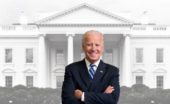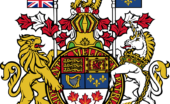Re Ian Bremmer 'Could third-party candidates upend the 2024 US election?' 3 April The current political movement in the USA…
Canada in 2011
Written by Diana Thebaud Nicholson // December 30, 2011 // Adam Daifallah, Business, Canada, David/Terry Jones // 1 Comment
Conservative Party of Canada Follies Episode #18: Welcome to Harperland!
Nibu and Mrs. Tibu discuss the Conservative Party of Canada’s attempt to rebrand the Government of Canada as “the Harper Government”. The wise leader steers the ship of state safely through the treacherous waters! Long live our wise leader! (YouTube)
The Real Outsiders: Politically Disengaged Views on Politics and Democracy, is the result of a four-month long [August-October 2011] study with politically disengaged Canadians. Turns out that people aren’t engaging in politics for the reasons we might think. Samara’s research reveals that the Canadians they talk to “no longer participate in the political system because of very real, concrete interactions with elected officials and government bureaucrats. As a result, they feel like outsiders from their own democracy.”
+++++++++++++++++++
Harper Save the Queen
(NYT) Hanging a portrait of the head of state in embassies and consulates abroad is the sort of thing most countries do as a matter of routine. For Canada, though, the move has proved controversial, not least because the country’s head of state lives thousands of miles away, in London.
The monarchy isn’t exactly a hot topic in Canada. But the conservative government of Prime Minister Stephen Harper, having decreed such ignorance unacceptable, has decided to raise the monarchy’s profile in Canadian life.
29 December
James Moore à la défense de Radio-Canada
(La Presse) Le ministre du Patrimoine, James Moore, a fait l’objet de vives pressions de la part de plusieurs députés conservateurs durant la dernière session parlementaire pour qu’il sabre 20% du budget annuel de Radio-Canada, soit environ 220 millions de dollars.
Mais le ministre Moore a riposté à ces pressions en affirmant que Radio-Canada/CBC est une institution essentielle pour l’unité du pays et que la société d’État n’aura pas à subir de compressions plus importantes que les autres organismes ou ministères, a appris La Presse de sources sûres.
20 December
Health reform: Harper tells provinces to make do with less
(Ottawa Citizen) Harper’s government will urge provinces to be more “accountable” for how billions of dollars are spent on medicare, but it won’t intrude in how they deliver health-care services — as long as patients are publicly insured.
And if premiers are counting on Harper to call a first ministers summit early next year to discuss medicare, they should think again. He’s not so inclined to call a meeting for the sake of it, and is more likely to work individually with the premiers to foster health-care reform.
These are the basic tenets that Harper is bringing to his approach on how to treat the Canadian health-care system. It’s directly in line with Harper’s overarching attempts since he first took office in 2006 to ensure federal and provincial governments keep their noses out of each others’ business.
Canada’s provinces getting more autonomy to reshape health care
(Globe&Mail) Canada’s provinces are being granted more autonomy to reshape health care as Ottawa moves to end 50 years of using its funding power to coerce provinces to adopt national standards.
With federal funding now set, Health Minister Leona Aglukkaq sent a letter on Tuesday to her provincial and territorial counterparts urging them to focus on how to reduce escalating health costs and to “put the divisive issue of funding behind us.”
What never ceases to amaze us is the tardiness with which government authorities come to conclusions regarding inflation, long after the simple citizen has long-since ascertained the facts – this is classic:
High food prices are here to stay
… food inflation has persisted throughout the year, and price increases are broadly based, from beef and baked goods to coffee, pasta and potatoes. That does not bode well as incomes stagnate, and may help explain why consumer spending has been lacklustre this year.
18 December
Rae urges Harper to visit Attawapiskat
But spokesman says PM will not visit impoverished community
Harper’s regular forays to remote northern communities since he took office have carried a strong emphasis on issues like defence and sovereignty, but rarely any evidence that the prime minister or the government has forged much of a relationship with the people who live there, Rae said. … “this is not about planes flying by or about defending the north from the Russians,” he said. “This is about defending the north from poverty, from terrible conditions in terms of housing and poor substandard education.”
16 December
Gerald Caplan — Be very afraid: Stephen Harper is inventing a new Canada
It’s in the nature of true believers and ideologues to believe that any means to their sacred ends are justified. This makes them extremely dangerous people. It’s also typical of such people that they’re often motivated by unfathomable resentment and anger, a compulsion not just to better but to destroy their adversaries. These are good descriptions of Stephen Harper and those closest to him.
Un sénateur conservateur contre le projet de loi C-10 de son propre gouvernement
Le sénateur québécois Pierre Claude Nolin affirme ne pas pouvoir appuyer l’imposant projet de loi C-10, principalement en raison d’une section portant sur la culture de la marijuana.
Justin Trudeau calls on Peter Kent to issue his own apology after expletive-tinged Commons clash
University of Ottawa political science expert Michael Behiels said there is no doubt the Conservatives are responsible for the explosions of anger by continuing to press and to heckle and to try to undermine opposition parties at every opportunity despite having a majority government.
“And I think the opposition has its back against the wall and doesn’t know what to do,” he said. “Not a single opposition amendment has been accepted. Everything they try to do is basically laughed at, dismissed. So the opposition MPs have had it, and it’s just pouring out.”
Mr. Behiels predicted this pattern would continue for the foreseeable future.
14 December
NDP raise possible conflict for Speaker
(Ottawa Citizen) Research firm in Cotler controversy worked for Scheer, other Tories on spring campaign
Immigration Minister Kenney moving ethnic-outreach strategy to Montreal ridings
(Hill Times) Opposition MPs say Citizenship and Immigration Minister Jason Kenney’s attempt to court the ethnic vote in Montreal ridings will likely flop.
13 December
Andrew Cohen: The smearing of Irwin Cotler
(Ottawa Citizen) … the Conservatives think so little of Cotler that they would defame him. And that they are so determined to have his seat, their majority notwithstanding – that they would go this low.
In Mount Royal, the federal government now employs Zajdel, who lost to Cotler in May. Zajdel is “a shadow MP.” His purpose, it seems, is to help municipal politicians get money.
When you see politics as a permanent campaign, this is fair game.
So Zajdel, a former city councillor, is rejected by the voters but hired by the winners. It helps that he’s an orthodox Jew in a riding where Jews represents 37 per cent of the electorate and 45 per cent of those who vote.
Zajdel, you should know, couldn’t carry Cotler’s briefcase. He is all-Israel all the time, convinced that it’s the only issue of interest to Jews in Canada. Or should be.
Behold, the Conservative Jewish strategy: outflank the Liberals on Israel. Paint them soft on security. Be more Zionist than Theodor Herzl.
12 December
Gordon Gibson: The greatest moral challenge in Canadian politics
(Globe & Mail) This is about “Indians.” I use the hard word found in our Constitution because that is the law. The warm and fuzzy, vaguely deferential “aboriginal” I leave to those who are content to feel good. “Indian” forces us to confront the fact that we continue to impose and finance a system wherein, to their great loss and the rest of our shame, about 2 per cent of Canadians are born with a big red “I” on their foreheads and a new number in the big book of status in Ottawa.
Our governments celebrate and finance the reserve system, that incubator of apartheid, and virtually ignore the 50 per cent of status Indians who have escaped and “gone to town,” to a statistically much better life. Even that is tough – an immigrant off the boat from Bangladesh receives incomparably better settlement services than does an Indian migrant from northern Saskatchewan to Regina.
8 December
Respect mah authoritah!
(Toronto Star) In the past few days alone [Prime Minister Stephen Harper’s Conservatives] clubbed a Cree community in crisis, dissed the Federal Court of Canada and shrugged off a dirty tricks campaign. This arrogance may come back to bite them. It doesn’t end there. Parliament has been redolent this week with reminders of other Tory abuses. Harper was under fire for his needlessly secret Canada/U.S. border talks. Treasury Board President Tony Clement was ridiculed for giving the nation’s taxpayers a one-finger salute with his $50 million gazebo and toilet splurge. And Defence Minister Peter MacKay caught flak for expecting military search-and-rescuers to run a taxi service for him.
4 December
Seven things we learned from the first NDP leadership debate
John Ivison: Paul Dewar and Robert Chisolm need to work on their French, Nathan Cullen distinguishes himself with humour and Peggy Nash may win this thing.
The real math behind Attawapiskat’s $90 million
How Ottawa spent $90-million at Attawapiskat
(National Post) Prime Minister Stephen Harper is apparently scratching his head about where $90-million in federal funding to Attawapiskat has gone — The original article, written by Chelsea Vowel, appeared on the site âpihtawikosisân.. (CBC) Feds aware of Attawapiskat crisis for years The federal department responsible for First Nations has known about the worsening living conditions at Attawapiskat for years, says former Indian affairs minister Chuck Strahl. Harper wants ‘accountable’ First Nations self-government
2 – 3 December
(The Star editorial) The crime is in the coverup
Peter MacKay, Canada’s defence minister, took a searchand-rescue helicopter from a fishing camp to the Gander airport. This, in itself, is not a big deal.
The issue is honesty, and the ethical code that the prime minister has a duty to establish in his cabinet. If a government can and will lie about little things, it can and will lie about big things.
(The Star) Harper changes defence over MacKay’s use of helicopter
With calls mounting for Peter MacKay’s resignation, Prime Minister Stephen Harper has abandoned a key element of the government’s explanation for the defence minister’s use of a military helicopter to fly out of a vacation fishing camp. (Globe & Mail) PM defends MacKay against charges he misled House on chopper ride
1 December
Kelly McParland: Conservatives revive Watergate in dirty tricks against Cotler
(National Post) Prime Minister Stephen Harper should be ashamed to head a party that would soil itself with such devious and underhanded activities. … It’s low-down, squalid and beneath the dignity of any government, of any stripe. But rather than apologize and back off, Tory officials bobbed and weaved and tried to justify it when finally forced to admit their responsibility.
30 November
Conservatives admit they’re behind false byelection phone calls in Liberal riding
(National Post) … while the party says it was not breaking any rules, political analysts say the tactic crosses a line and will harm not only voters’ trust in the system, but perhaps even the Conservatives themselves.
29 November
Documents show ‘harperization’ of government communications
(Globe & Mail) New documents obtained by The Canadian Press under the Access to Information Act directly contradict published claims by Stephen Harper’s chief spokesman that bureaucrats have not been directed to replace the words Government of Canada with “Harper Government” in departmental news releases and backgrounders.
28 November
Harper’s crime bill poised to pass – and Canadians still don’t know how much it costs
(Globe & Mail) The irony is delicious. Opposition politicians voted to find Prime Minister Harper and his government in contempt of Parliament last March – this was a historic first – for not giving up the full costs of its so-called tough on crime legislation. Now, it is poised to pass the bill and Canadians are still no wiser.
22 November
Quebec angered by Ottawa’s refusal to budge on crime bill
Jean-Marc Fournier said his province and the federal government have two visions of justice after Rob Nicholson refused during a meeting in Ottawa on Tuesday to change provisions of Bill C-10 that deal with young offenders.
14 November
10 reasons to oppose Bill C-10
(Toronto Star) Bill C-10 is titled The Safe Streets and Communities Act — an ironic name, considering that Canada already has some of the safest streets and communities in the world and a declining crime rate. This bill will do nothing to improve that state of affairs but, through its overreach and overreaction to imaginary problems, Bill C-10 could easily make it worse. It could eventually create the very problems it’s supposed to solve.
Bill C-10 will require new prisons; mandate incarceration for minor, non-violent offences; justify poor treatment of inmates and make their reintegration into society more difficult. Texas and California, among other jurisdictions, have already started down this road before changing course, realizing it cost too much and made their justice system worse. Canada is poised to repeat their mistake.
The Canadian Bar Association, representing over 37,000 lawyers across the country, has identified 10 reasons why the passage of Bill C-10 will be a mistake and a setback for Canada:
6 October
‘Rules were broken’ over G8/G20 summit spending: Auditor-General
(National Post) The federal Auditor-General ratcheted up his criticism Wednesday of the Harper government’s spending on the G8 and G20 summits, detailing serious concerns about broken rules, potentially misleading expenditure requests and ministers hand-picking projects to receive funding.
Wiersema repeated many of the concerns first raised in the A-G’s June report, but explained in much greater detail the problems his office uncovered with the government’s management and fiscal oversight of G8 and G20 spending.
29 September
Andrew Nikiforuk: Five Falsehoods About ‘Ethical Oil’
(The Tyee) The ethical oil campaign began with Ezra Levant, a political activist and lawyer with close ties to government. He even works in Prime Minister Stephen Harper’s war room during elections. For the record, Levant is a former tobacco lobbyist and a convicted libeler. He is also a political extremist who has demanded the jailing of Greenpeace leaders.
21 September
9 key elements of the crime bill
A guide to the federal government’s Safe Streets and Community Act
9 June
Audit report: Interim auditor-general blasts G8 legacy fund
(National Post) Canada’s interim auditor general is blasting a shady selection process surrounding the approval of 32 infrastructure projects that received $50-million in the riding of Tory cabinet minister Tony Clement for last summer’s G8 summit in Ontario.
In a scathing audit tabled Thursday in the House of Commons, John Wiersema suggested the whole process “lacked transparency” and was submitted to Parliament without “clear-and-accurate information” about what MPs voted to approve.
24 February
Bev Oda affair fails to catch fire with voters
(Globe & Mail) Opposition parties are vowing to turn the Oda affair into an excruciating toothache for the Harper government even as a new poll suggests half of Canadians are numb to the controversy.
15 February
Not exactly a viewpoint we share.
Adrian MacNair: The curious case of Bev Oda and the noteworthy ‘not’




One Comment on "Canada in 2011"
Re Canada’s new lustre in the world
Perhaps THE key ingredient in Canada’s turnaround was a period of sustained global demand in which an undervalued currency could generate enough growth to maintain high employment and enable the UE fund to pay off about half the accumulated debt–conditions woefully absent today. As to “Canada could replace London” as the global mining centre, Canada WAS the global mining centre until foreign investors picked off the Ontario mining giants and Alcan, moving their listings out of the TSE and in some cases to London (Rio Tinto). Canada the Switzerland of the North? When Switzerland is the European Canada, THAT will be something to talk about. If Canada were to focus on high quality products and generate the productivity to sustain a high C$ value, who knows? It might actually happen. But not under Stephen “oilcan” Harper –despite the fact that we might be first with the necessary technology to guarantee the total confidentiality of financial transactions.